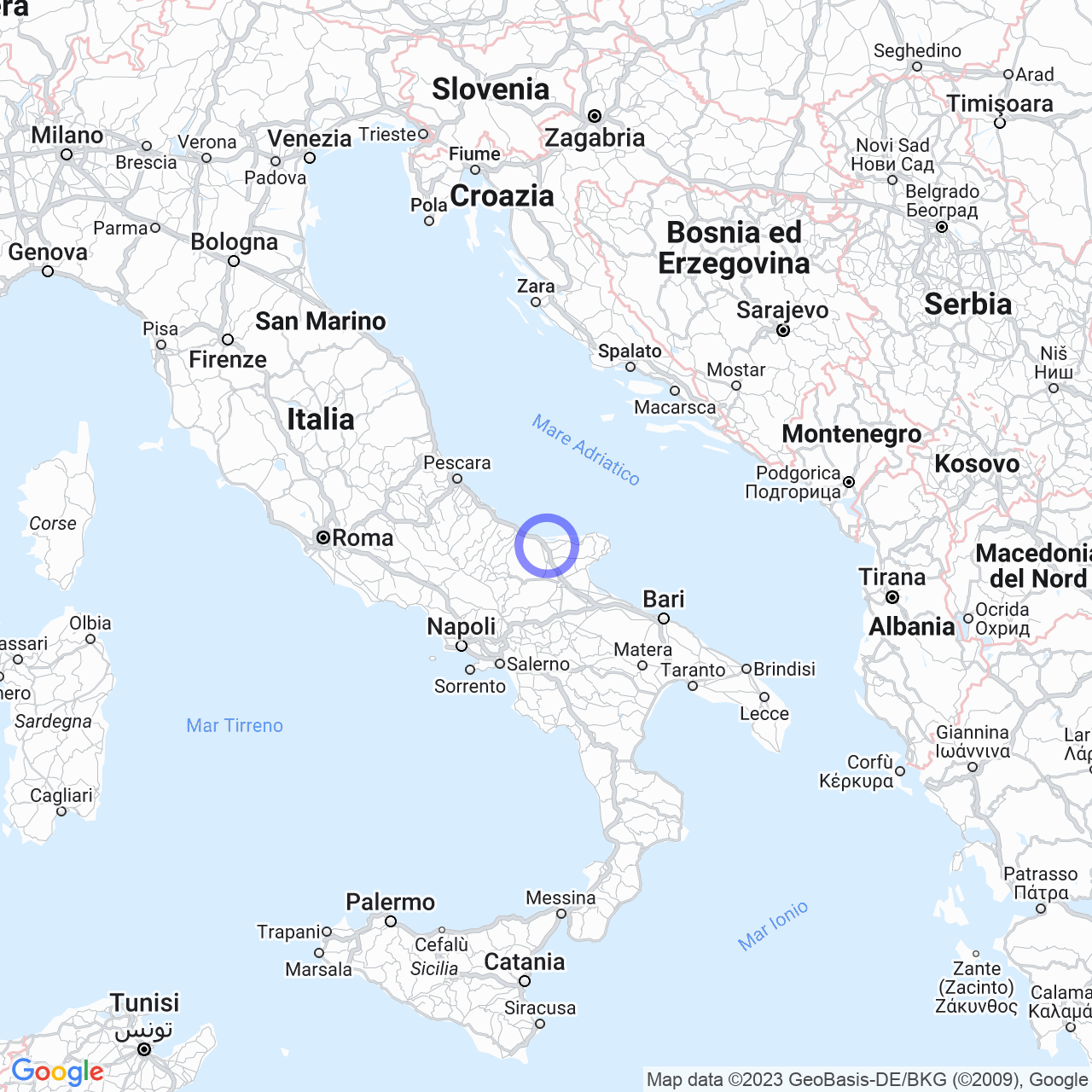Poggio Imperiale
Welcome to Poggio Imperiale
Hello everyone! Today we'll be talking about a small town in Puglia, Poggio Imperiale, known by its inhabitants as "Tarranòve" (New Land). With its 2492 inhabitants, it is located in the province of Foggia and was founded relatively recently.
The Origin of the Name
The name of the town comes from two words: "Poggio," referring to the hill on which the city sits, and "Imperiale," in honor of its founder, Prince Placido Imperiale.

The History of Poggio Imperiale
The birth of Poggio Imperiale is related to the figure of Prince Placido Imperiale. Originally from Sant'Angelo dei Lombardi, in the Principality of Ulterior, he became the owner of the Feudo A.G.P. ("Ave Gratia Plena") in 1753, which included many territories of the current town of Lesina. In 1759, attracted by the strategic position of a hill between the towns of Lesina and Apricena, he decided to build a large farmhouse with some farmhouses.
Around these first buildings, the town was born, which Placido Imperiale named Poggio Imperiale. The prince brought some families from the outside, from San Marco in Lamis, Bonefro, Portocannone, Foggia, Bari and Francavilla, who were the first inhabitants of the new village.
In 1761, two years after the birth of the town, the prince entered into an agreement with 17 families from Albania, coming from the city of Shkodër and fleeing from the religious fanaticism of the local pasha. These families were faithful to the Catholic religion and had been settled in Pianiano, a hamlet of Cellere. Later, another 20 families (75 people) joined them.
Some of these families arrived with two spiritual guides, Don Marco Micheli, originally from Bria, of the Diocese of Shkodër, and Don Simone Vladagni, born around 1724 in Shkodër. A group of Greeks of Albanian rite also arrived.
However, apart from some families, the Albanians who had moved to Poggio Imperiale did not find the right place for them and decided to return to Pianiano. The priest Vladagni also decided to leave the city, after the bishop prohibited him from celebrating the Holy Functions in Placido's church.
The End of Albanians in Poggio Imperiale
The Albanian community in Poggio Imperiale was not well received by the Italians, and many of them returned to Pianiano, leaving only a few Albanian families in the area. Due to malaria and a cold winter that caused a poor harvest, the remaining Albanians decided to emigrate to Rome.
Conclusions
So here is the brief history of Poggio Imperiale, a town founded by Placido Imperiale in 1759, with the aim of turning an empty hill into a welcoming village. If you visit this town, in addition to enjoying its hilly landscape, you can also discover its origins and the history of the Albanians who arrived there in the late eighteenth century.
